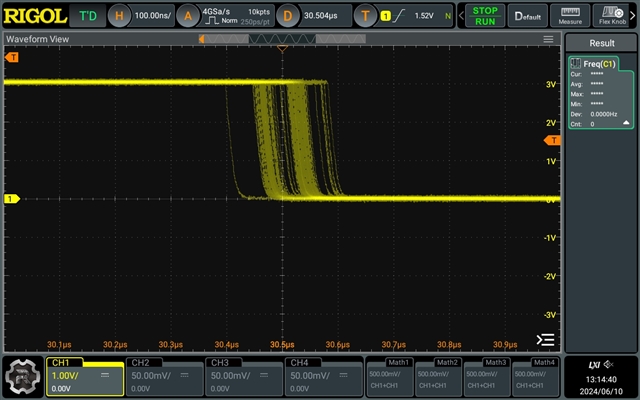Hi there
I want to measure the accuracy of the 32.768 kHz oscillator connected to a nRF5340
I have tried a lot of other devzone tickets, but most of them are too old or don't work for nRF5340.
I also tried to use a pwm-led output with 4096Hz to measure the accuracy, but it was more than 5000 ppm inucurate (got 4117.4Hz)
Do you have a recommondation to test the LFXO accuracy with a nRF5340?
Could you provide example code?
Thank you,
Chris



